Call of Cthulhu is all about investigation, madness, and (surprise surprise) dark secrets
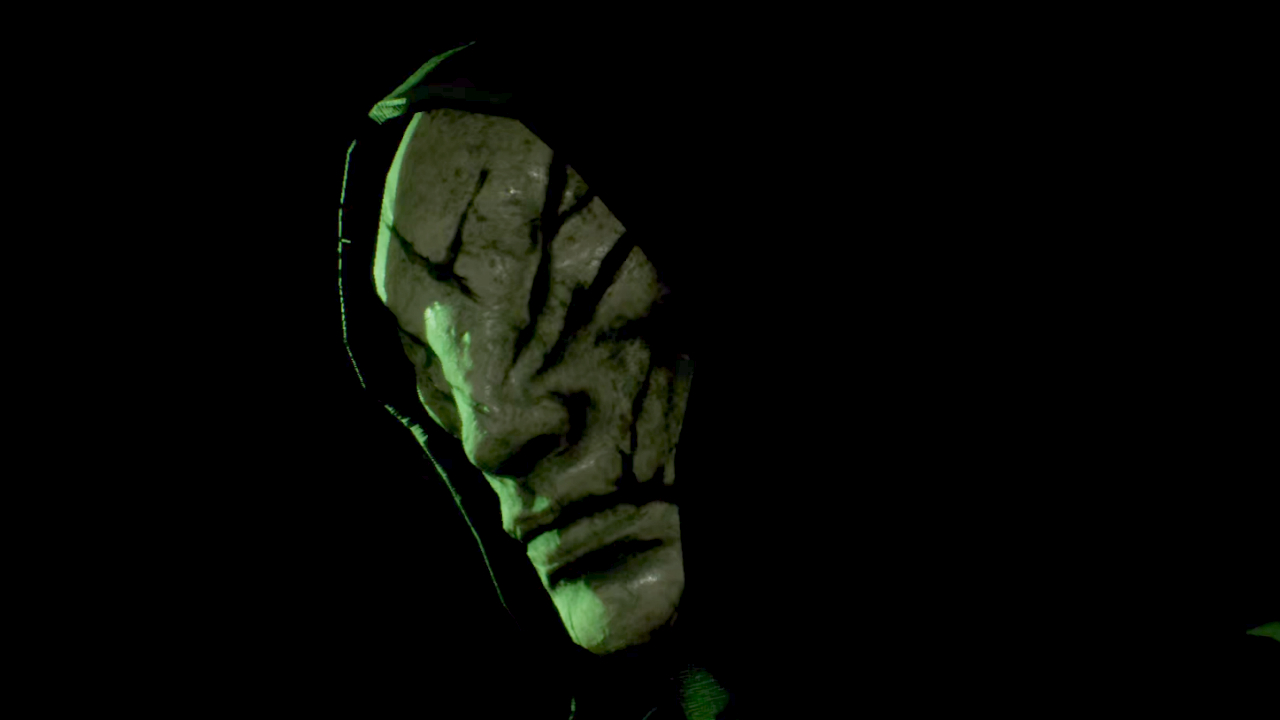
The unspeakable lies in the shadows. Waiting. Dreaming. Rooted in this supernatural abomination, Call of Cthulhu has been a mystery up to now. But thanks to the recent Focus What’s Next Showcase, I can shed some eldritch-tinged light on Cyanide’s horror/investigation RPG. Sat in a green-tinted room which looked like it belonged in the Addams’ family house, I witnessed a 20 minute demo which didn’t feature any tentacles, cultists, or occult ramblings. Yet the Lovecraftian overtones were strong enough to warp my mind into an excited frenzy. Now that I’ve lit a black candle and have my cultist robes on, it’s time for me to tell you absolutely everything I found out.
What the eldritch-hell is Call of Cthulhu?
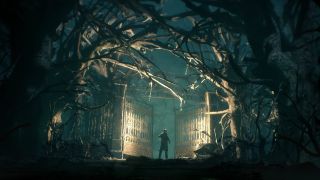
On Darkwater Island stands Hawkin Manor, a giant grey house filled with secrets. One tragic night a giant fire rips through most of the mansion, killing three of its inhabitants - the artist Sarah Hawkins, her husband Charles, and her son. The police are useless. Filled with inconsistencies and errors, their case on the tragedy was closed quickly. Suspiciously quickly, some would say. You play Edward Pierce, a private investigator looking for work in the 1920s. Sent by Sarah’s father to find out exactly what happened to his daughter, you’ll dig deep into the disconcerting activities going on, including a bizarre cult, so many secrets, and creatures you’ll wish had stayed in the shadows.
Darkwater Island is an odd place. Unwelcoming citizens look on you with distrust. You’re a mainlander. An outsider. Something weird is going on though, and you intend to find out what’s lurking in the dark. You’ll have to explore, investigate, and talk to people to gather clues and find out what really happened with the fire, uncovering Darkwater’s secrets at the same time. Who knows - maybe you’ll even try to stop the hellish goings-on. Maybe. That is, if you can fight off insanity long enough to survive…
First thing’s first: knowledge is your only weapon
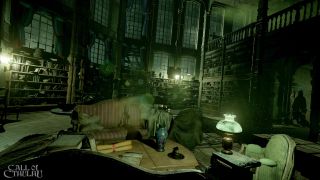
No blasting your way through monsters here: there are very few weapons in Call of Cthulhu. Instead you’ll have to keep your eyes peeled to discover as much as you can about your surroundings, Darkwater, and its inhabitants. What you find out will unlock new dialogue options, new quest objectives, and indicate where you should go next to uncover more about the island’s dodgy goings-on. Festering in the darkness are some horrifying creatures and secrets however, so every time you find out something you’ll loose a little bit of your sanity (more on that later) because it’s hard to come to terms with the horrifying Lovecraftian truth.
As Maximilian Lutz (Call of Cthulhu’s narrative designer) explains to me, “the more information you gain” from taking the time to explore your surroundings “the more powerful you will become”. With more knowledge comes “more options to progress in the game, or “more clues about how you can defeat its monsters”.
So in the demo I’m taken around the grounds of the Hawkins Manor. Amidst the usual withered trees and grey skies is a graveyard (if you expected cheeriness, you’re playing the wrong game). Three gravestones protrude from the hard dirt. Two of them have flowers below the headstone - the third is unkempt, as if ignored. Crouching down by it and brushing off the moss reveals it’s the grave of Charles Hawkins, husband to Sarah. Looks like someone isn’t too fond of him.
Bumping into the caretaker (whose axe is held a little too close to my face, making me a little bit twitchy) shows how important that observation is. Picking what to say to him to make him lower the blade, I settle on mentioning the flowers and how much he must have cared for the Hawkins family - except Charles, that is. He softens slightly at the mention of the graves and lets me investigate the mansion. Jackpot. Just one example of how exploring and investigating will yield palpable results, in Call of Cthulhu you’re rewarded for being thorough.
Sign up to the 12DOVE Newsletter
Weekly digests, tales from the communities you love, and more
Keeping an eye on your sanity meter is crucial
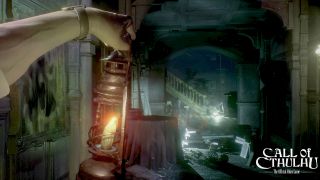
Why not investigate everything, and become a walking encyclopedia about Darkwater? Your sanity meter won’t let that happen. As you find out more and face up to the fact that something inhuman is controlling events from behind the veil, your sanity drains away. If it reaches zero you’re in real trouble. Each traumatising event you witness edges it ever closer to the bottom.
Lovecraft’s approach to insanity comes in handy to explain this next bit. For him, Lutz explained, “when you lose your sanity you begin to see another reality”. As you recede more into madness, you’ll be closer to the truth. In a way your loosened grip on reality lets you see the supernatural side of things which sane people might refuse to face up to. Even helping with story at some points in the game, sometimes you’ll “be confronted with a person who can give you the truth” which you can only perceive thanks to your insanity. Going on to specify what happens, “if you accept the truth you will gain information but you will lose even more of your sanity”. Understandable, as coming to terms with the disturbing events of Darkwater would turn anyone mad.
TL; DR: if you have less sanity, you’ll have more weapons (in the form of knowledge) meaning you can unlock more bits of the game, but you’ll be weaker. One overly traumatic event, and you’ll be unconscious before you can say R’lyeh.
Golden rule of CoC: investigate, investigate, investigate
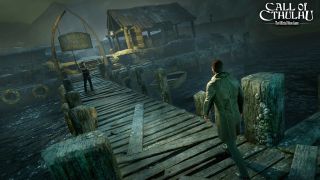
To get all this knowledge you’ll have to don your deerstalker (metaphorically, that is) and investigate the locations as much as you can. The main part of investigating involves encountering a scene and turning it upside down to find ‘clues’. Entering a charred room in Hawkins manor, I notice a broken lamp, a toy soldier, a stopped clock, and a single shoe, all littered amongst the ashes. Picking them up and using my forensic skill (I’ll get onto that in just a moment) I can spot some interesting details about each clue. The smashed lamp has blood on it - thrown at someone, it looks like. The clock is stopped at 10 o’clock but the report says the fire occurred at 12. Hmm. Weird. The toy soldier shows the young Hawkins boy was in the room, and the shoe must have been left behind in a struggle.
Each detail I spot on a clue is called a ‘lead’. So, at the moment I have four leads: four things which hint at the real story behind the fire. Now it’s time to make a ‘deduction’. My investigation rank is 2 at the moment, so I can pick two of these leads to base my deduction on. If I pick the right ones - the ones which say something important and hint towards the truth - I’ll make a deduction that leads to the next part of the quest. Talk to the right person, investigate another location, that kind of thing. But if I close my eyes and select two at random, I’ll end up on a wild goose chase.
Investigating thoroughly, I was told by Lutz, will mean you “ask the right questions and gain a lot of information”, helping you to progress in the story. During your exploration the stuff you’ve found out will lead to new conversation options, new clues to spot when reading documents, as well as generally being able to anticipate some twists in the story.
Skills let you read people, objects, and minds (kind of)

Now that you’re acquainted with the importance of investigation, I bet you’re wondering what other weird and wonderful things you can do as a private investigator? As well as getting a coat that would make any noir detective jealous, you have three main skill trees: social, knowledge, and profession.
‘Social’ encompasses talking to people (cue astonished gasp). Four methods await you, each a different approach to get as much out of them as possible. ‘Persuasion’ is for those of you who have silver tongues. ‘Intimidation’ will appeal to those of you who like making people quake in their boots. The innovative option is ‘psychology’, which in the demo was used to read into the meaning of a painting. You can then use your observation to make deductions about the person who painted it, although I didn’t get to see it in action in dialogue. Perhaps it’ll also be used to goad whoever you’re talking to into responding. Lastly, there’s ‘small talk’ - which we’ve all suffered through at one point or another. It’s safe to assume this’ll help you put people at ease before you dive into asking them why everyone avoids your gaze, or what’s up with the green tinge to everything. Or why they have tentacles coming out of their face. You know, profound questions and the like.
‘Knowledge’ will be what you’ll use to learn more about places you visit and their history. One skill is a mystery for now, but Lutz did tell me that ‘occultism’ is definitely one of them. Obviously this will include knowledge of dark magic and alternate dimensions, which will undoubtedly come in handy when you’re trying to figure out where the giant tentacled overlord is hiding out. Slightly more rustic is the ‘folklore’ skill. I’m assuming that it’ll let you analyse the local tales to find the hidden truth in them, helping you to seek out the cult waiting in the shadows.
Lastly, there’s the ‘profession’ tree. No, you won’t have to wear a super-professional suit to access these skills. Consisting of all the abilities that you have as a private detective, it’s what lets you garner information from your surroundings. So there’s ‘forensic’ (which I mentioned in the section above) which allows you to spot clues on objects, just like CSI. There’s also ‘investigation’, which allows you to make deductions based on the clues you’ve gathered and generally means you’re more incisive when it comes to finding out where the story leads you. Don’t be too surprised by this, but not everything is going to be laid out in plain sight. Funny, considering it’s a game based on mysteries and secrets, right? So your ‘spot hidden’ skill will come in handy to find out what’s concealed from view. Secret compartments, disguised doors, anything generally engineered to be overlooked - all will be revealed if you specialise in spot hidden.
The more you put into Call of Cthulhu, the more you’ll get out of it. Lutz told me that “as you interact with people, objects, and use your skill in the game, you will be rewarded with experience points. You will be able to spend them to upgrade some of your skills”. Interestingly, there was also a brief mention of equipping items to get skill bonuses. No word yet on whether they’ll be in the form of a bone amulet or a special investigator’s hat.
Followers will do some of your dirty work for you
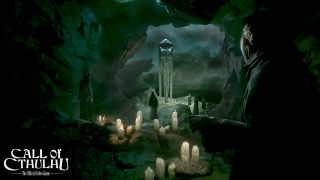
Does all this sound a bit overwhelming? Don’t fret, because there are others to share your burdens. During your investigation you have the option of recruiting other investigators, as long as you can win them over during dialogue.
Keeping tabs on these followers would be hard without the headquarters (or lair, whichever term you prefer) Lutz revealed you’ll have at your disposal. Citing examples like “Mass Effect, or Dragon Age Inquisition”, he went on to explain that “you can speak with them and they can give you secondary missions based on their past that will help you explore more of their character”. Relationships will blossom as you’re in for the chance of “maybe [bonding] with them”, plus understandably you’ll “gain a better relationship with them if you help them in their quests”.
After lending a hand with their missions, they’ll want to return the favour. You’ll be able to send them on a mission, unlocking the management part of Call of Cthulhu where you choose which location that you want to make them go. Whilst there they’ll gather information or clues for you, meaning that you have more options in your main story. Each follower has their own particular profession and set of skills, so carefully deciding which follower to send on a particular mission will yield the best results.
Is one getting on your nerves, or maybe looks a bit shady? You can boot them from your headquarters too by accusing them of being a traitor or secret agent of the cult. Who knows, one of them might eat without closing their mouth and you might just not be into that and want them gone. Unsurprisingly these choices you make will affect the storyline, so think carefully before waving adios to one of them.
Phobias: you have them
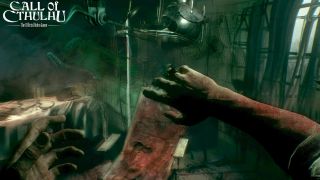
That’s right: to make things even more difficult you have phobias. Functioning as a way to ensure you never feel completely confident during the game, they’re a reminder that Call of Cthulhu is based on fear above all else. So hiding in a cupboard might seem like a good idea to avoid the creature prowling outside, but with claustrophobia your sanity decreases rapidly when you’re in a small enclosed space.
Mixing up your approach to investigating and stealth, the phobias will push you out of your comfort zone. That’s a good thing, trust me. Interestingly, their appearance is unscripted, so they’ll be developing spontaneously. Perhaps they’ll emerge based on how you play. I imagine that it would be unsettling to say the least if the game caught onto the fact that you like to hide, and then started punishing you for doing so.
Stealth is rare, combat almost non-existent
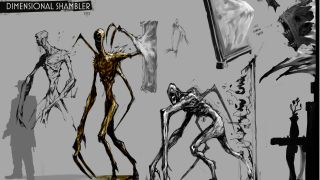
Stealth is only a small part of the overall game. As would be expected when you’re confronting a supernatural cult, there are going to be some encounters where you’ll want to take cover and hope they don’t rip your mind apart. Lutz revealed that “you are defenceless” and “you can’t really fight the monsters” sent your way. Even when you get a weapon “later on in the game, it will only slow them down”. In that case, what do you do to escape the monsters? You use your mind. No, I don’t mean telekinesis - knowledge is your most potent weapon. Using clues you gathered before the encounter you can find creative ways to get rid of the creature. A slimy green thing clawed its way out of a painting in the demo, and it turns out the one way to send it back from whence it came was to stab a painting with a dagger. But with half a dozen daggers to choose from, you’ll have to rack your brains to make sure you pick the right one.
I chose the wrong one. I died. I wish I’d taken more time to think about which dagger to pick.
There are 4 endings
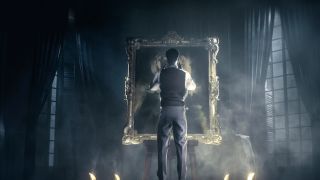
Speaking to the developers after the demo, and trying to keep the shake of excitement out of my voice, I found out that a couple of conditions have to be met to encounter the different finales. One you’ll only get if you have maximum sanity and your feet firmly planted on the ground. Another will only appear if you’re at the opposite end of the spectrum and have absolutely zero sanity (maybe it’ll be part hallucination?). Interestingly the others seemed to be based on whether you have certain followers alive or not - though there’s no word on who these followers have to be or why they’re important.
So, there’s absolutely everything I know about Call of Cthulhu. Time for me to blow out this creepy candle.
While here at GamesRadar, Zoe was a features writer and video presenter for us. She's since flown the coop and gone on to work at Eurogamer where she's a video producer, and also runs her own Twitch and YouTube channels. She specialises in huge open-world games, true crime, and lore deep-dives.

This indie open-world RPG takes Stardew Valley's fishing and turns it into its main combat system: "This is not a peaceful fishing game. The destruction of the world is imminent"

"It can't start in a way that just feels crappy": Avowed devs are turning to animation to solve an RPG "challenge" of offering a sense of progression without sacrificing a strong start
Most Popular



